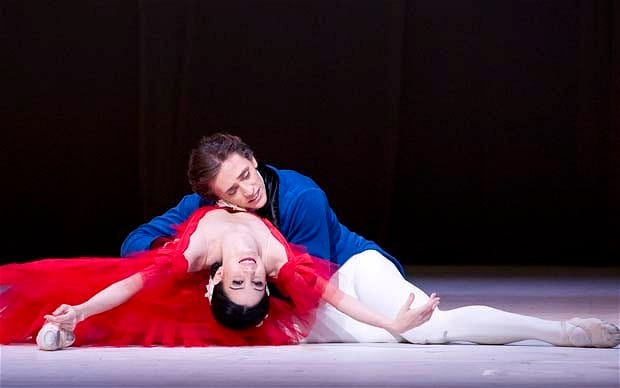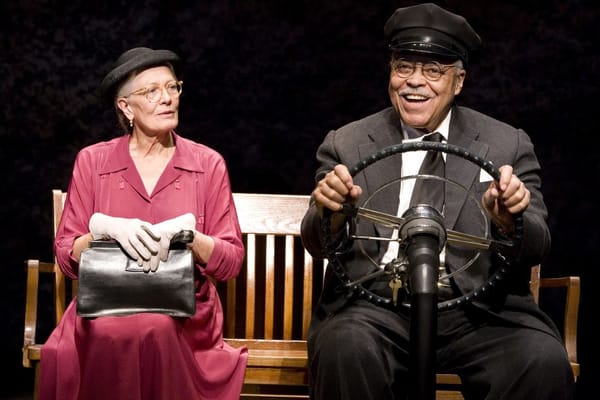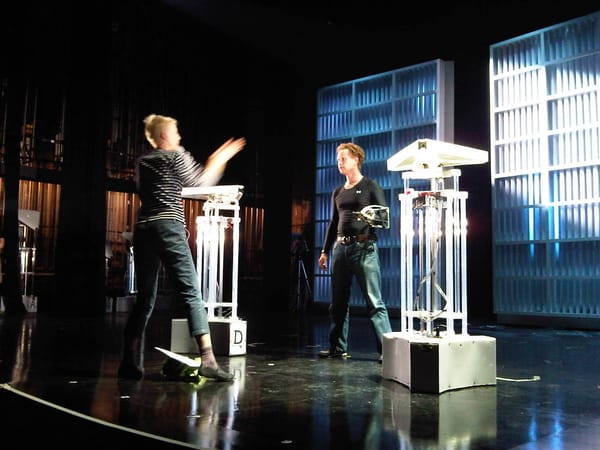The Royal Ballet is alive and well
A ballet from the wings and a strong triple bill made for two very special evenings at Covent Garden. Dance in Britain is going strong

Watching a ballet from the wings is an experience akin to glancing through an open window into the life of a stranger. A voyeuristic experience perhaps. Dancers on a stage appear as magical and ethereal creatures, even in the most human of roles. They are perfectly poised, every movement apparently effortless. However, in ballet there is little that can be done without effort.
‘Jewels’, choreographed by George Balanchine and danced by the Royal Ballet, was a joy to behold from the wings of the Royal Opera House stage. The corps dancers wandered around in leg warmers, joking with friends and trying the more complicated steps one last time before the performance. Tension and concentration was far more palpable in the faces of the principals. As soon as the curtain rose however, intense professionalism took over the entire company. Ballerinas wore smiles on stage, but these disappeared in an instant in the darkness of the wings, and were usually replaced by grimaces or cursing. The final curtain calls brought relief to the corps and ecstatic joy to the principals, who went home with arms full of flowers . Ballet is tough, especially for those lowest in the hierarchy, but this company showed that it does not necessarily have to be tragic.
A second ballet event took place last week. A triple bill is currently playing at Covent Garden, showcasing the work of three British choreographers. The evening begins with ‘Limen’, a visually stunning piece devised by resident choreographer Wayne McGregor. The dancers move with virtuosity upon a stage lit by the digital artist Tatsuo Miyajima’s LED projections, with an elegance that has become McGregor’s signature.
The real gem of the evening was undoubtedly Margurite and Armand
Ending the evening was Kenneth McMillan’s ‘Requiem’. It is a somewhat stilted ballet, with never-ending lifts and little in the way of dancing. Set to Fauré’s Requiem, it is inevitably funereal in tone. However, Leanne Benjamin was soft and precise in her solos and CarlosAcosta, although minimally involved, lent some of his star quality to the performance.
The real gem of the evening was undoubtedly ‘Marguerite and Armand’, a Romantic ballet originally choreographed for Margot Fonteyn and Rudolf Nureyev by Fredrick Ashton. The ballet itself is a captivating piece, Ashton’s choreography at its best to the Liszt piano sonata. It manages to compress Dumas’ La Dame aux Camèlias into half an hour without losing the essence. The designs and costumes are by the legendary Cecil Beaton, famous amongst other things, for ‘My Fair Lady’.
The piece has been danced few times since Fonteyn and Nureyev, but Tamara Rojo and Sergei Polunin can compete with the greats. With Polunin, the Royal Ballet finally has a male dancer they can be proud of. He not only has a phenomenal jump and a forceful technique, but also a raw talent for acting. As Armand, Polunin displays both these qualities and combines them to give a passionate performance. Rojo is the ultimate tragic actress in ballet; and it is impossible not to be moved by her Marguerite. Moreover, her technique is impeccably light and she moves on the stage with a rare security. Marguerite and Armand provides the opportunity to see a ballet partnership with chemistry, something unfortunately too often missing in the dance world. One can only hope Rojo and Polunin will be partnered again soon.
Limen, Marguerite and Armand, Requiem: until 20th October at Covent Garden. Tickets from £4






